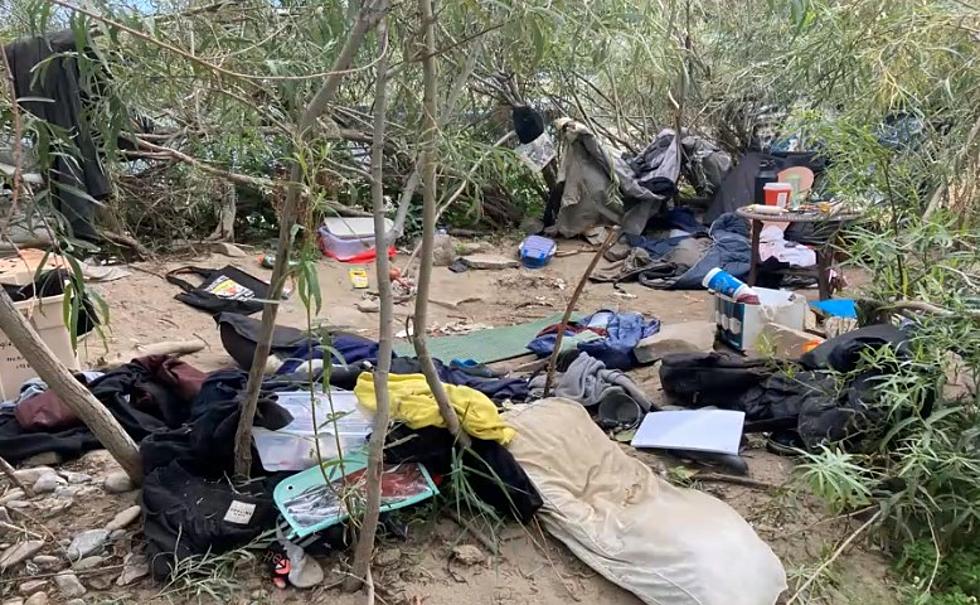
Council member pushes for homeless camps in city neighborhoods
Martin Kidston
(Missoula Current) Opening several authorized camp sites for the homeless in city parks and vacant lots in each of Missoula's six voting wards would provide some homeless residents a “place to exist,” one City Council member argued on Wednesday.
Council member Kristen Jordan detailed her concept during a two-hour hearing, saying the authorized city camps would include outhouses, needle disposal bins and trash containers.
The “pilot program,” as she described it, would establish 12 sites with two camps in each city ward. Three to four sites would operate at any given time and rotate every two months. They would cap the occupancy at 35 occupants and operate unstaffed and without security.
She said the camps would self-regulate if permitted to do so.
“We're looking at a new normal, folks,” Jordan said. “Things haven't changed for a while, and we need to start thinking outside the box on how we're going to help our unhoused community.”
The city of Missoula this month voted to open and operate a second shelter on Johnson Street on a year-round basis – an operation that will cost more than $2 million and has prompted outrage in the adjacent neighborhood.
It was described two months ago as the “top priority” among homeless advocates who advised the city. Now that funding for the shelter has been allocated, Jordan said it's not enough and the city needs to do more.
Jordan abstained from voting on the Johnson Street shelter last week for a number of reasons. And on Wednesday, she didn't place a total cost on her new proposal other than expenses related to portable bathrooms, sharps containers and garbage service, which she placed at around $550 a week.
She said the camps would operate on city property, including parks and vacant lots, but could also operate on private property.
“I'd like us to review all of the city's property, whether it's a vacant lot or a park that's not used as much,” said Jordan, adding that private property could also come into play.
Authorized camps tried before
The city has experimented with an authorized camp site in the past, but it was deemed unsuccessful for a number of reasons. City officials placed the cost of that camp at $360,000 annually, or $800,000 with security.
But issues around drug use, drug distribution, human trafficking and other crime became a problem, as did the lack of staffing and the capacity of service providers to operate the site.
Despite such issues, Jordan said her pilot project would not include security or management, and she grew frustrated as council members asked questions to better understand her proposal.
“I've been clear from the beginning that these would be unstaffed and unsupervised,” Jordan said. “These sanctioned sites will allow us to curtail the damage of the waste these folks are providing because they don't have the services they need to live in a more healthy and clean way.”
Service providers on Wednesday didn't say whether they have the ability or capacity to manage the camps. But they did agree with city experts that oversight of the camps would be necessary.
“Like many of you, we're concerned with there not being any oversight,” said Jill Bonny, executive director of the Poverello Center. “We've all agreed there needs to be some sort of oversight, and that takes capacity and funds. I don't know what's being asked of any of our agencies at this time.”
The city also questioned its ability to sanction such camps due to liability, cost, staffing and other concerns.
Eran Pehan, director of the city's office of planning and development, said best practices require a partner to oversee and manage authorized camps, even if security is set aside. But that doesn't come cheap, she added, and the city is currently busy trying to open the Johnson Street shelter.
“Portland runs a very effective authorized camp system,” said Pehan. “To point out the scale, Portland has invested $8 million in tipping up and covering the operational costs to serve 200 individuals. That's the type of scale of investment we're seeing in communities that do this real well. It's a tremendous amount of money.”
Issues around drug use also remain a concern. Jordan has advocated for open drug use at the Johnson Street shelter, though on Wednesday she described that effort as “harm reduction.” The authorized camps would offer containers for needle disposal, she said.
“There's a lot of reasons why people are houseless, and one of them does have to do with addiction,” Jordan said. “If people are addicted, they're going to use regardless, whether there are sharps (needle) containers available or not. It's not sanctioned drug use, as some news people have phrased it. It's actually a harm reduction model.”

